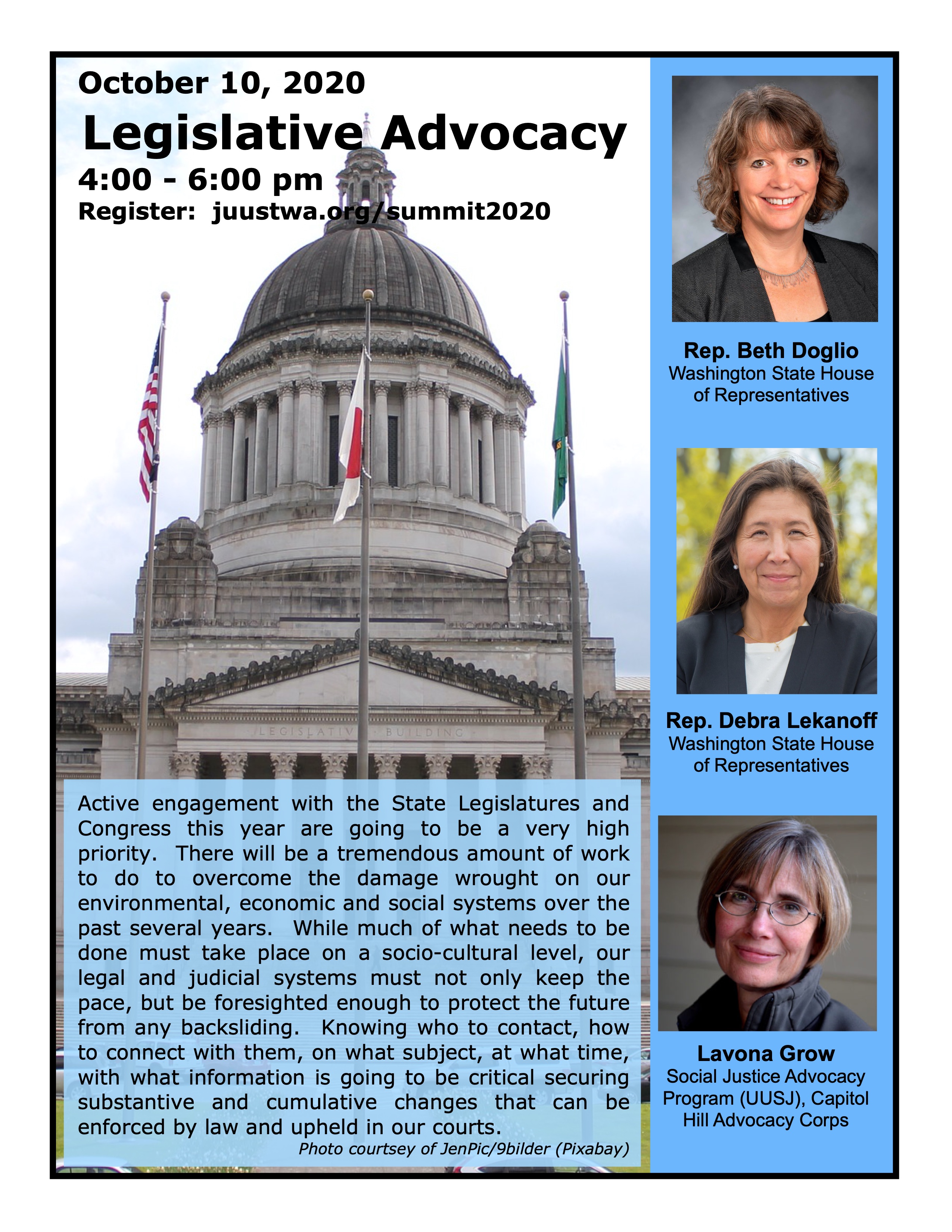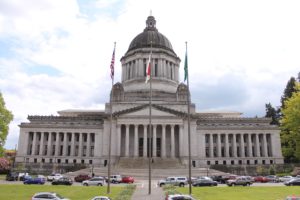
December 6, 2020 Legislative Strategy Session Summary
Issue Topic Area: Legislative Drop-In Session
JUUstWA Summit Facilitator: Larkin Flora
JUUstWA Summit Advisor(s): Lavona Grow (UUSJ), Rep. MyLing Thai, Rep. Alex Ramel, Rev. Paul Benz (FAN)
JUUstWA Action Lead: Deb Cruz, Doug Mackey
This session was less a work session than it was an information gathering session.
Rep. Alex Ramel, 40th District, WA House of Representatives
Rep. Alex Ramel spoke about how he saw the legislature being shaped this year because of the impacts of COVID-19 and he stated what his priorities were going to be.
Rep. Alex Ramel: representing the WA 40th Legislative District, was appointed in January 2020 and re-won his seat in the 2020 election cycle. He came to this work from predominantly working in environmental advocacy in Whatcom County (knows Deb through that work).
The legislature is going to be run very differently this year because of COVID-19 restrictions. Much of the legislative activity will be conducted through teleconferencing. Also, because of COVID-19 budget impacts, the budget is going to take top priority and legislative initiatives (proposed bills) will be severely limited. The number of initiatives will also be significantly reduced due to focusing on COVID related impacts on the budget and state systems and resources.
He stated his committee assignments are going to change next week [since the Summit he’s been assigned to the Energy & Environment Committee as well as the Finance and Transportation committees]. Rep. Ramel’s priorities are climate justice and affordable housing.
There are four priorities from the House Democratic side of the legislature. They are:
-
- Pandemic and related health and economic recovery efforts
- Balancing the State budget (behind on $3.5b for the next three years. Choices are to cut services and leave folks behind (e.g. make college more expensive, reduce access to health insurance for low-income children), or ask wealthy folks to chip in more. He stressed not balancing the budget on the backs of those who earn the least. There is the suggestion to reduce fossil fuel subsidies to help with balancing the budget.
- Confront the history of injustice and inequity in our society, most clearly and urgently in the criminal justice system, but also in making equity part of everything the legislature does (just like we already ask how a bill will affect the budget, we need to ask about justice and equity with every bill), (Thai added having an “equity impact statement” for each bill) across the board.
- Climate crisis: House Democratic Caucus is committed to big steps to make WA a leader. The legislature did pass a GHG reduction statement last year to keep pace with state-wide reduction goals to be carbon neutral by 2050. Rep. Ramel is part of a task force on this: State Energy Strategy Task Force; likely bills to be worked on this this year include:
- Putting a price on carbon (we’ve had two initiatives in WA, and the time has come. There are now two competing ideas:
- cap and trade proposal (Pros: creates a limit on carbon emissions, and syncs with the California (CA) carbon market easing trade, and has a minimum standard of at least what CA will adopt to avoid watering down), or
- an innovative new carbon tax program-Washington STRONG Act (set a tax and bond against 30 years of tax revenue, allowing for about $15b in green recovery bonds for clean energy priorities, economic recovery, broadband investment, environmental recovery like salmon habitat, stream recovery especially culverts issue for the Tribes.
- “Clean Buildings Healthy Homes” to address the 23% GHG emissions that come from buildings, mostly as methane (natural gas), and if we don’t address the increasing gas cost the burden will be carried by low-income folks who have not been able to transition from gas to electric in their buildings, justice equity and climate justice goals.
- Bike Lane Buy Fair (Rep. Duerr), making sure that the labor producing green products is done with fair labor standards and carbon emission standards: require the state government to buy products that meet these standards. Unifying labor and environmentalists.
- Putting a price on carbon (we’ve had two initiatives in WA, and the time has come. There are now two competing ideas:
Other areas:
-
- GMA bill (spearheaded by Rep. Duerr) to likely require increased planning for housing requirements and climate action planning in the Growth Management Act (applying to the 10 largest counties and the cities in those counties (Whatcom is #9 or #10).
- Once the session gets going, Rep. Ramel stated they will need people to push for climate action, so that legislators (particularly in the senate) hear the need to pass climate bills and take the issue seriously. There are a lot of competing crises right now, House Dem leadership has climate as one of four priorities and all four are important. Need continuous drumbeat for climate action. Last year climate bills got out of the House but not the Senate.
- Broadband Internet Access. The issue of internet access was brought up, particularly in light of the subject having been brought up in the RIMS session. Concern is that with the legislature and hearings all going to be online, farmworkers are out in rural areas that have sketchy to no internet service. Access is also restricted as there are areas where there is no free access. Rep. Ramel explained that in 2019 the legislature enacted the Washington Statewide Broadband Act that is trying to determine what kind of access is needed and where. It is a complex problem as areas, cities and towns can use different services, have different infrastructures, and there are competing visions of what a state-wide system would look like. One proposal to consolidate services an access. Built into the WA STRONG Act. Any efforts need funding.
- Revenue inequity. This applies to revamping and restructuring the existing tax code. Low income folks pay 17% of income on taxes. Wealthy pay 2-3% of income on taxes.
- Too many people in prison and unfairly punished. Deferred to Rep. Thai.
- Snake River Dams – Removal requires Federal involvement especially with Army Corp of Engineers. WA State commissioned analysis for Corp of Engineers. Also look to the NW Energy Coalition analysis which recommended removal. Some additional resources include the North Olympic Orca Pod Facebook page and Linda Mapes article in Seattle Times “Salmon People: A Tribe’s decades-long fight to take down the lower Snake River dams and restore a way of life”
- Patsy Whitefoot, Yakima Nation was present
Rep. My-Linh Thai, 41st District, WA House of Representatives
Rep Thai stated the top priority this session will be the budget beyond 2020, which is in a very serious state of affairs. She will be looking to post-COVID economic recovery; racial equity, climate justice and civil rights issues including police accountability, gun safety equity in our systems and addressing the affordable housing crisis. She also reiterated the constraints under which the legislature will be operating due to COVID impacts.
Caucus Top Priorities
- Budget 2021-2022 and beyond are critical needs restructuring
- Economic Recovery including racial equity.
- Climate Justice with emphasis on younger generation
Other Issues
- Peace Officer Accountability Act. Working with other State legislatures and State and local law enforcement, families being impacted and the judicial system who will be tasked how the implementation of the legislation will occur.
Qualified Immunity is a federal doctrine [under court interpretation of 42 USC 1983]. We want to open a pathway for a State cause of action (allowing lawsuits against officers in cases of harm and death), we are in internal negotiations over different pieces of policies. Our fifth draft should be available for the public late next week. I’m getting requests for meetings from different groups of law enforcement. Because of the constitutional piece of this all our policies are being cross-checked. We want to make sure justice is available through this legislation.
Will look to diversity recruitment of law enforcement. Also to look at inequity of established law that must be enforced by law enforcement that puts them in a precarious situation. An example, Bellevue recently prohibited parking a vehicle for more than 24 hours. This implicates people living in their vehicles, who are choosing between food, medical expenses, and buying gas. Law enforcement will be called to enforce the city ordinance. If harm occurs because law enforcement is doing what local and State law mandates, it should be the local government (and the State of Washington) be liable if law enforcement officers violate people’s rights if laws are inequitable to start with. Restorative justice and avoidance of frivolous lawsuits are being addressed in multiple pieces of legislation.
In November 2020, Rep. Thai and Rep. Debra Leknaoff have been appointed to the Policing Policy Leadership Team by the House Public Safety Committee Chair.
- Eviction moratorium. Working to address both perspectives of landlords and those being evicted. New committee is being developed to help address human services, landlord/tenant issues. Want to address local, small landowners who rely on rent as supplemental income, circumventing the moratorium by wealthy landowners, preventing evictions and evictions and debt being used as a barrier to obtain housing. Working Family Tax Credits was passed in 2008 but never funded. Cash needs to go to people, we saw how the CARES Act cash payments to people helped with economic stability and recovery. Working families and working individuals need to have cash on hand (many are just $400 away from crisis). What is proposed right now is $500.
- Martin v. City of Boise – 920 F.3d 584 (9th Cir. 2019) remanded to the 9th Circuit District which established the people’s right to occupy public space and directing local governments to provide resources e.g. shelters and housing. “Holding that ‘[S]o long as there is a greater number of homeless individuals in a jurisdiction than the number of available beds in shelters, the jurisdiction cannot prosecute homeless individuals for involuntarily sitting, lying, and sleeping in public.’”
- Equity Impact Statement. It requires analyzing who will be impacted by legislation. If there is a fiscal note, a racial equity impact statement should be included that speaks not only who much, but to who will be impacted and how.
- Teen sucide being addressed by K-12 Behavioral Mental Wellness and Suicide Prevention committee evaluating adult to youth ratio, creating youth mobile support, educational support system, navigators coordinate support systems effectiveness in the schools, suicide prevention information on student IDs and 988 system in place by July 2021 instead of 2022, accessibility of telemedicine, trauma intervention for families, youth and seniors.
- Detention Center viewed as private prison. Collaborating Jayapal Progressive Caucus in Congress putting out a moratorium for detention and deportations until Biden/Harris policies are developed. Working with WA’s goal to eliminate all private prisons. Immigration might be folded into racial equity legislation this year in order to get something passed.
Rev. Paul Benz, Faith Action Network
Among other things, the Faith Action Network is a coalition of faith communities that engage with the legislature to encourage passage of initiatives that center equity and justice. FAN offers advocacy training, organizes an interfaith lobby day, attends hearings and lobbies legislators. Their priorities for the 2021 session can be found here. These priorities will include, but not limited to,
- the budgets,
- police reform – 4 primary bills. WA Coalition for Police Accountability. Looks to immunity and prosecution among other issues.
- racial equity
Lavona Grow, UUs for Social Justice, Washington D.C.
Lavon rejoins us at this session as a continuation from her panel presentation on October 10th. UUSJ is a UU group who does advocacy and lobbying work in our nation’s Capitol, focusing on federal legislation and executive action.
General comments for upcoming session
- COVID – Funding is promising
- Possible that policies will be coming out Executive Order vs Legislation unless makeup of the Senate changes
- Messaging Bills – generally single party (Dem v Rep), not expected to pass, but to message constituents that legislation has been proposed-for bills with a chance of passing, look for bipartisan, bills in committee, etc.
- Watch differences in authorization v. appropriations. Many bills are passed into law (authorized), but never get funded (appropriated) essentially rendering them moot.
- Post comments to congressional Facebook pages
- Write letters to the editors, congressional staff will review local newspapers besides informing local community
UUs for Social Justice – Advocacy Corp Topics for this session will focus on:
- Immigration
- Economic Justice
- Climate/Environmental Justice
- Defending Democracy
Lavona identified areas where State legislators and Congressional members need to hear from constituents:
- Thank you’s for working on issues
- Reasons to speak up even if you agree with their positions, they need to be able to cite “my constituents” . . .
- Hear individual stories that can also be recited
- Hear about local and state issues and impacts
- Encouragement and support for working on a bipartisan level
Lavona is specifically involved with Climate/Environmental Justice
- Intersection with housing, immigration, etc.
- Faith communities to raise up voices of impacted communities. Faith Community brings moral and equity voice which is really as they received plenty of technical information
- Incorporation into other bills, not necessarily one bill by itself
- Climate Crisis Policy proposing bills. Climate Crisis Policy new initiative to build nationwide network in support of a climate bill package:
- “It’s critical to unite across movements for political power to make Congress act in 2021. To do that they came put together a Climate Bill Package for 2020 to build a voting block of 100 House members.” Learn more under Action Campaigns: https://climatecrisispolicy.org/action-campaigns/
- Use messaging bills (bills proposed by one party without hope of passage) to raise specific issues
- Job transition, cannot cut jobs in extractive without replacing them with equitable non-extractive jobs, Just Transition movement
- American Innovation and Manufacturing bill – provides for Industry changes
- Washignton Staff Inter-religious Community – has groups working on specific issues https://washingtoninterfaith.org/our-work
- Climate Crisis Policy and Panel Event – requested access to recording of the event
Immigration – incarcerated youth in detentions
- UUSJ team working on immigration
- Washignton Staff Inter-religious Community – has groups working on specific issues https://washingtoninterfaith.org/our-work
- Referred to UUSC, grants provided
Register for Part II of the Summit Now!
Intersectional and Legislative, Sunday, December 6, 12:30-3:30 pm PST
Workgroup Topics
We understand that justice work often overlaps and does not fit neatly into one category. During our Sunday afternoon session, participants will have the opportunity to return to re-engage discussion from their workgroups with further co-pollination from other workgroups. Topics may emerge organically throughout the weekend, or include discussion around:
- Food Access & Sovereignty: In this workgroup, we will explore broadly or specifically food sovereignty from the perspective of Racial and Environmental justice such as food deserts and reclaiming unused lots for community gardens, ceremonial and traditional subsistence for Indigenous Tribes and Nations, farmer boycotts and migrant labor union support for Migrant Workers, among other potential topics such as food banks, soup kitchens and more
- The right to abode: In this workgroup, we will explore broadly or specifically the right to abode, including the right to housing, housing the unsheltered, Sanctuary models for congregations and cities, legislation that holds state or federal government officials accountable for people relocating due to environmental injustices, detention center issues, and improving living conditions for migrant workers.
Legal Drop in Session: In addition to our intersectional workgroups, we will also hold a Legal Drop in Session for intersectional discussion, training, and time to work on legislative objectives of all other topics with support from analysts, legislators and lobbyists.
Active engagement with the State Legislatures and Congress this year are going to be a very high priority. Regardless of the outcomes of the presidential election, there will be a tremendous amount of work to do to overcome the damage wrought on our environmental, economic and social systems over the past several years. While much of what needs to be done must take place on a socio-cultural level, our legal and judicial systems must not only keep the pace, but be foresighted enough to protect the future from any backsliding. Knowing who to contact, how to connect with them, on what subject, at what time, with what information is going to be critical securing substantive and cumulative changes that can be enforced by law and upheld in our courts.
Part II of the Summit for Legislative advocacy was a bit of a challenge. How do we address the myriad of justice issues that will be part of both our congressional and legislative processes this year? Many of our strategy sessions will be looking at what legislation exists, what is in the initiative process and what needs to be introduced. We decided to go with a “drop-in” session—legislative representatives and legislative advocates will be on hand to answer both legislative procedural and general questions. Join us for getting answers to specific questions or just hang out and talk about what’s up in the legislature now and how do we move it forward or oppose it!
Legislative Advocacy Panel
October 10, 2020 @ 4:00 – 6:00 pm
If you registered for this panel, you should have received the links to the video recording and transcripts. If you did not participate in the Summit and would like to have access to the video and transcripts, please notify us.
Rep. Beth Doglio-Cancelled
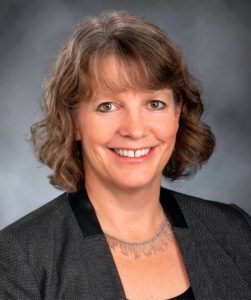 As a progressive, community organizer Representative has spent the last thirty years in training to take on the trust and aspirations of her community, to secure a thriving, sustainable, just and compassionate future for us all. She is currently serving her second term as a state representative from the 22nd legislative district. Beth also served as the campaign director at Climate Solutions and as the regional co-director for the Power Past Coal campaign. She was also the founding executive director of Washington Conservation Voters and served in that role from 1991 – 1995 and in 1996 she was a field organizer for National Abortion and Reproductive Rights Action League (NARAL). Beth has worked in public, private, and non-profit sectors, and has served in leadership staff positions in numerous political campaigns.
As a progressive, community organizer Representative has spent the last thirty years in training to take on the trust and aspirations of her community, to secure a thriving, sustainable, just and compassionate future for us all. She is currently serving her second term as a state representative from the 22nd legislative district. Beth also served as the campaign director at Climate Solutions and as the regional co-director for the Power Past Coal campaign. She was also the founding executive director of Washington Conservation Voters and served in that role from 1991 – 1995 and in 1996 she was a field organizer for National Abortion and Reproductive Rights Action League (NARAL). Beth has worked in public, private, and non-profit sectors, and has served in leadership staff positions in numerous political campaigns.
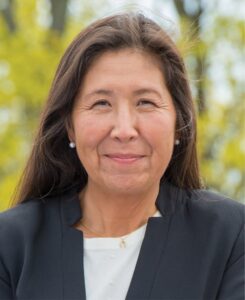 Rep. Debra Lekanoff is a member of the Tlingit tribe and a member of the Washington Legislature representing the State’s 40th House district for position 1. She is the second female tribal member to serve in the Washington House of Representatives. In addition to serving in the Legislature, Representative Lekanoff served as Governmental Affairs Director for the Swinomish Tribe. With over 20 years of government relations experience, she engages on a variety of issues at the international, federal, tribal, state, and local levels. Her background and experience provide valuable knowledge and perspectives that allow her to lead on a wide range of policy issues, including but not limited to, environment, natural resources, climate change, education, housing, and agriculture.
Rep. Debra Lekanoff is a member of the Tlingit tribe and a member of the Washington Legislature representing the State’s 40th House district for position 1. She is the second female tribal member to serve in the Washington House of Representatives. In addition to serving in the Legislature, Representative Lekanoff served as Governmental Affairs Director for the Swinomish Tribe. With over 20 years of government relations experience, she engages on a variety of issues at the international, federal, tribal, state, and local levels. Her background and experience provide valuable knowledge and perspectives that allow her to lead on a wide range of policy issues, including but not limited to, environment, natural resources, climate change, education, housing, and agriculture.
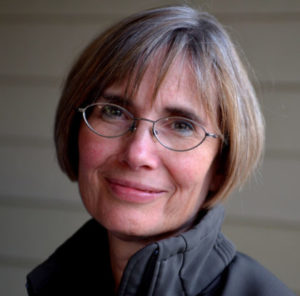 Lavona Grow is a member of UU Church of Arlington, VA. She established and directs the Unitarian Universalists for Social Justice (UUSJ) Advocacy Program — Capitol Hill Advocacy Corps (20 years old this year) and the Write Here! Write Now! congregational partner letter-writing programs. She became the Executive Director and lobbyist for Common Cause Indiana, moved to Washington, DC and developed and directed the government relations lobbying graduate-level “Washington Representative Program” at The George Washington University. She initiated and helped organize a Capitol Hill Lobby Corps for the national Common Cause office, and was a member of the American Association of University Women Lobby Corps for nearly 20 years. And served as a civil servant at the U.S. Dept. of Education.
Lavona Grow is a member of UU Church of Arlington, VA. She established and directs the Unitarian Universalists for Social Justice (UUSJ) Advocacy Program — Capitol Hill Advocacy Corps (20 years old this year) and the Write Here! Write Now! congregational partner letter-writing programs. She became the Executive Director and lobbyist for Common Cause Indiana, moved to Washington, DC and developed and directed the government relations lobbying graduate-level “Washington Representative Program” at The George Washington University. She initiated and helped organize a Capitol Hill Lobby Corps for the national Common Cause office, and was a member of the American Association of University Women Lobby Corps for nearly 20 years. And served as a civil servant at the U.S. Dept. of Education.
